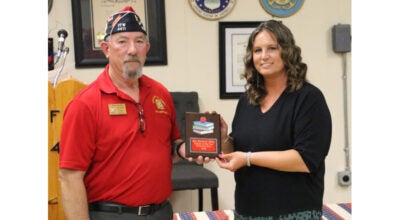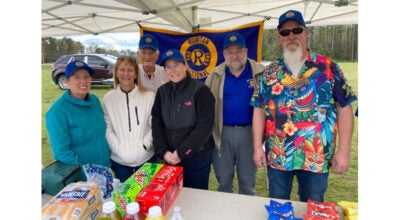Have we been unfair to Doubting Thomas?
Published 6:46 pm Tuesday, April 21, 2020
|
Getting your Trinity Audio player ready...
|
By Charles Qualls
Willoughby was a poor hound dog, light on intellect but long on stubborn pursuit of his quest. He was a cartoon character, introduced in a 1940 animated feature. His catch-line was, “Which way did he go? Which way did he go?” The poor hound would follow his nose and his curiosity anywhere, always a few steps behind his quest. So popular did the phrase become that Warner Bros. made sure that he continued to pop up in a total of 11 of their stories. These are cartoons that generations have laughed at. Always late on the chase, poor Willoughby doesn’t know which way to go.
When I read the story in John 20: 19-31, I feel like Willoughby. I don’t know which way to go, so many possible lessons and storylines are featured here. Jesus’ sheer power is on display, as well as his instructive words. Into a Coronavirus season of our lives, where many are quarantined at home, Jesus walked in. His disciples are cloistered in a locked room, fearing for their lives. Despite the locked door, Jesus meets them right where they are.
Twice he says to them, “Peace be with you.” Those are timely words for our physically distanced days. Then, we are reminded why we refer to one of his followers as “Doubting” Thomas. This exchange is rich in meaning for us all, as well.
Related, there is also the challenge issued by Jesus that those who believe without having seen all they’d like to see are most blessed. Finally, there is the small epilogue as John’s account ends. A statement of purpose for John having written a Gospel in the first place. This closing note makes us glance skyward, lost in thought as to what all we have never even heard about the Christ.
Suffice for today that we go back to dear Thomas. We have labeled him a cynic and unbridled questioner of even his Lord. A rebel of sorts. Have we been unfair? Thomas has said that he would not believe until he had seen the nail holes in Jesus’ hand and the executioner’s slits in his sides. Now, presented with the chance to see those very things, Thomas’ confession bursts forth. Without touching Jesus at all. Can you hear his voice as he responds so viscerally? “My Lord and my God!”
Our substance-addicted friends are called upon in 12-step groups to remember something that we Christians can often forget. That is, their recovery hinges among other things on their ability to admit that there is a higher power. This is also within the statement of faith that Thomas makes. “My Lord and my God!” demonstrates that Thomas is reminded that God is God, and therefore he is not. Nor, does Thomas have to be. Perhaps rather than a doubter, Thomas was simply a soul who was a little more reticent to believe.
This is the same Jesus who has proclaimed himself to be “the good Shepherd” in John 10. He has said he would even be a protective door or gate of sorts, but has now rejoined his flock without any worry of a locked door himself. He who has said that he knows his flock by name has already called Mary by hers. Her soul was immediately reawakened.
Now, he who has told this very group that he must go and prepare a place for them (John 14) has now come back for them. “I am the way, the truth and the life,” he said to them back then. Now, he breathes the ultimate source of life into them in the locked room. The Holy Spirit will lead, comfort and guide them as they continue on their quest for ministry and living out their call.
I find that simple confession powerful, the one that Thomas makes. “My Lord and my God!” I also find it instructive. In these days of the COVID-19 illness, you are not God. Nor do you have to be. I hope that brings you relief, perspective and hope. Just as the disciples needed to see him most, Jesus showed up. That’s what a legitimate God will do. God will show up, although maybe not at the very first moment we would like. But always when we need.
THE REV. CHARLES QUALLS is pastor of Franklin Baptist Church. Contact him at 562-5135.





